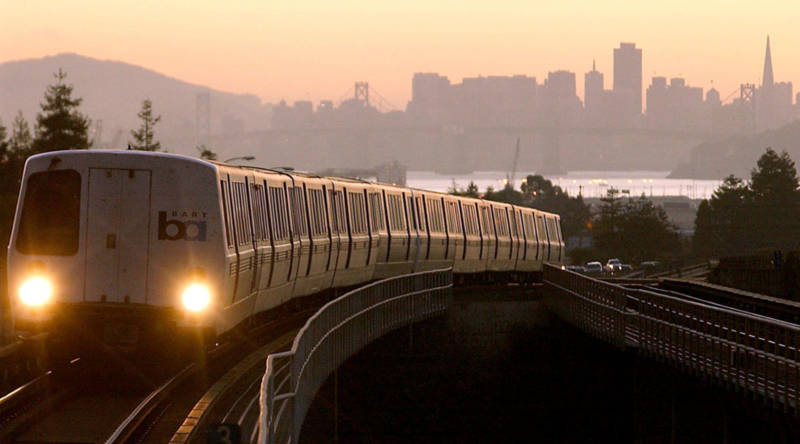Measure RR would authorize BART to issue $3.5 billion in bonds over the next two decades to pay for core infrastructure upgrades, including new rails, new electrical systems, tunnel repairs and a modern train-control system. Other capital projects, such as the system’s new train cars and its revamped Hayward maintenance facility, are being financed through a combination of grants and funds set aside from BART’s operating revenue.
Property owners in the three BART counties would pay an annual levy ranging from about $9 to $17.50 per $100,000 of assessed valuation (not market value), with the higher figure reached around 2035. Under that scenario, the additional annual tax for a home with an assessed value of $500,000 would be $45 a year near the outset of the bond program. The additional annual tax bill for a home with an assessed value of $1 million in 2035 would be around $175.
Measure RR would require a collective two-thirds Yes vote in the three counties to pass.
Glazer has likened the current board members to unruly children who must not be rewarded for bad behavior. He says if voters want change on BART, they ought to vote down the bond, vote out most incumbents and let a new board of directors “do it right” with a revised financing proposal.
Borenstein and the East Bay Times have repeatedly denounced BART and the bond measure over the last several months. The columnist has labeled the measure a “bait and switch scheme” that would allow the agency to spend bond funds indirectly on labor costs. The Times itself has editorialized against the measure not once but twice, saying residents of the three BART counties should vote “hell no” on the bond and labeling the proposal “a scam.”
Rufus Jeffris, the Bay Area Council’s chief spokesman, said rhetoric like that could have an impact beyond Tuesday’s election.
“Sen. Glazer and others might argue that Measure RR should be defeated now, that reforms should be made, and then return with another measure in 2018,” he said in an email. “But decimating public opinion about the system could take years to repair and put BART is a position where 2018 isn’t a viable election.”
Wunderman said he recognizes BART leadership’s faults over the years.
“I don’t disagree that BART management has been imperfect on some issues, getting into the past, but the solution is not to then blow up BART to prove a point, because it’s not going to fix itself,” he said. “You can’t disagree that the system needs investment.”
Wunderman, who says he commutes to San Francisco from BART’s Pleasant Hill nearly daily, also argues the agency’s service, management and workers are getting a bad rap.
“I think BART management on the whole has done a great job,” Wunderman said. “Management is easy when everything works well and all you have to do is show up and go home at 5 o’clock. That’s not the story at BART. They’re playing a huge amount of catch-up and using chewing gum to fix parts. … I’ve been to the maintenance yards and seen what the workers do, and it’s actually very, very impressive. There’s a lot of spirit there, and I think it must be very dispiriting for people to do hard work and meaningful work and have it belittled.”
He applauds the agency for its increased use of operating revenues — the money it gets from fares, parking fees, sales tax and other sources — to pay for long-term capital improvements. In its fiscal 2016-17 budget, adopted in June, the agency designated $193 million from its operating revenues for new rail cars, system repairs and other projects. That figure has grown from $6.7 million at the depth of the Great Recession in 2009 and $52 million five years ago.
In an interview last week, Sen. Glazer dismissed BART management’s efforts to tap operating revenue to pay for its long-term, big-ticket needs.
“Well, look, they feel like they need to get everybody to like them now, so they’ve tried to improve their behavior,” he said, adding such steps are too little to make up for what he called decades of neglect.
Glazer conceded voting the bond down will have a negative impact on the system. But he added BART itself bears responsibility for that.
